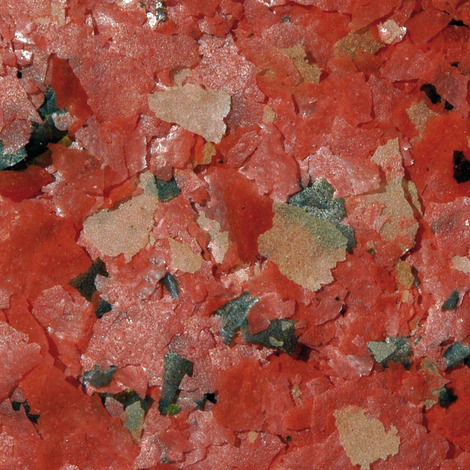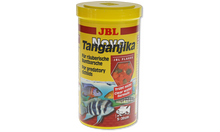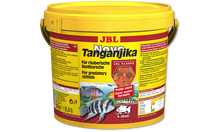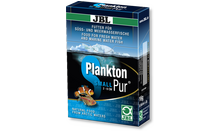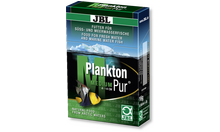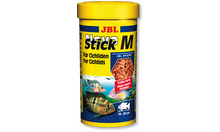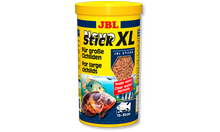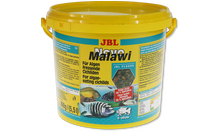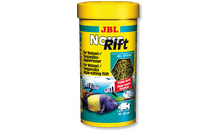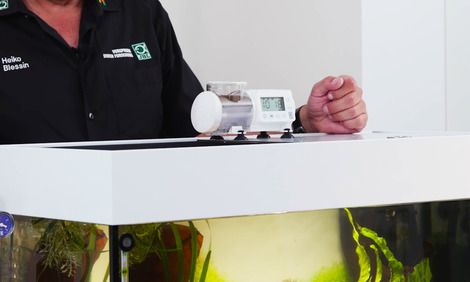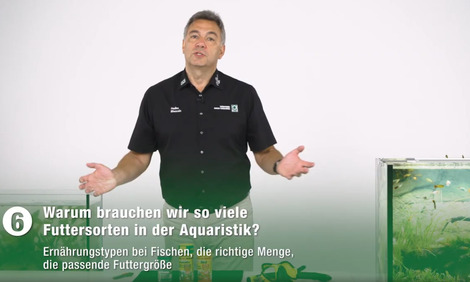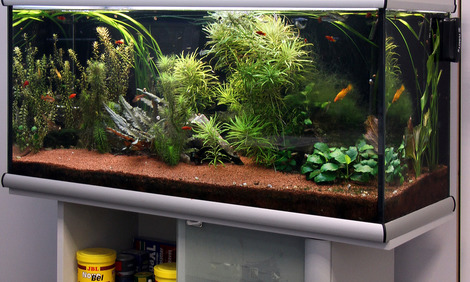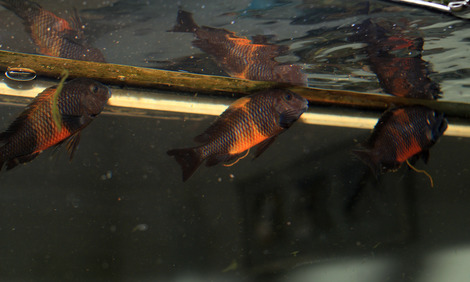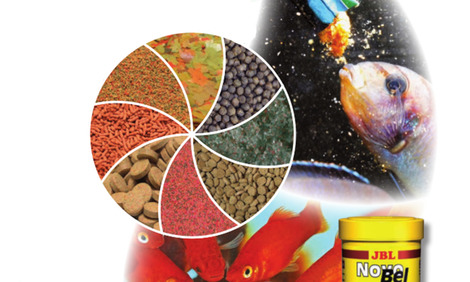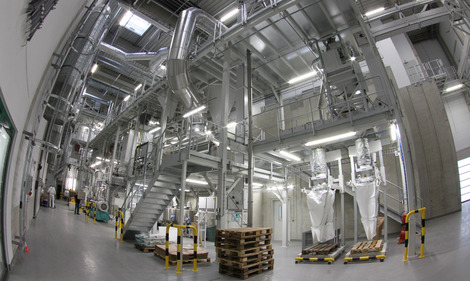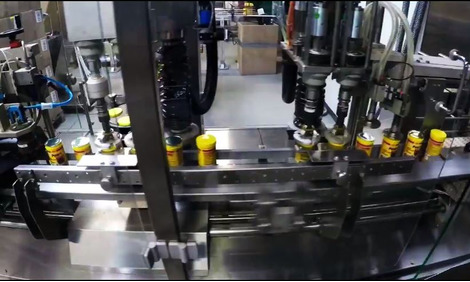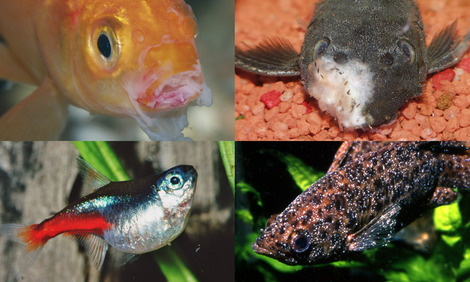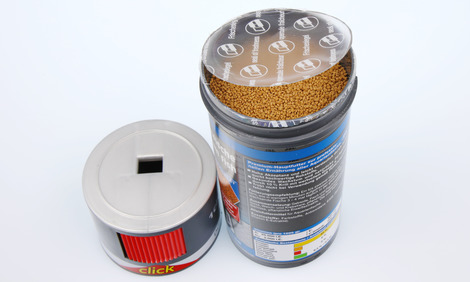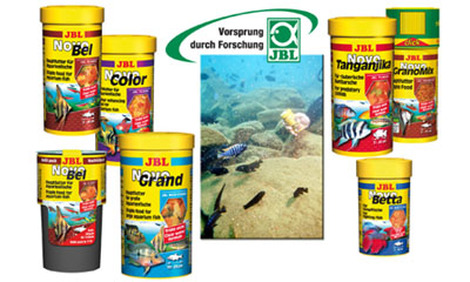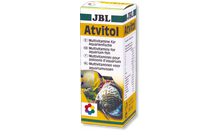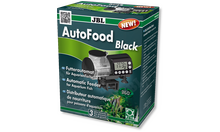In the Rift Valley lakes of East Africa (Lakes Malawi and Tanganyika), many cichlids have specialised in grazing the algae growth from the rocks for the microorganisms living in them (growth eaters). In contrast, almost all remaining species live predatory lives and eat fish, microorganisms, shrimps and fish fry. Some even eat only the scales of other fish (Plecodus). JBL NovoTanganjika was developed for the predatory species of the two lakes. If both groups are kept together in ONE aquarium, it is essential you offer both types of food. Each feeding type will then receive the right food.
Typical predators of Lake Tanganyika: Lamprologus, Neolamprologus, Julidochromis, Cyphotilapia, Telmatochromis, Calinochromis Typical predators of Lake Malawi: Trematocranus, Haplochromis, Nimbochromis, Sciaenochromis, Labidochromis
Other good reasons to use JBL fish food:
The use of pure fish protein without cheap fish meal.
Optimal protein/fat ratio.
Mainly proteins from water animals.
Reduction of algae growth and optimal fish growth thanks to adapted phosphate content.
Impressive acceptance on the part of fish:
Research expeditions with fish feeding trials in the wild. Minimal vitamin loss thanks to airtight sealed packaging.
Feeding recommendation
Feed 1 - 2 times a day, as much as can be eaten within a few minutes. Young, still growing fish 3 - 4 times a day in the same way.
Unopened the food tins can be kept for 3 years, after opening use up within 4 months, since valuable vitamins will deteriorate. Choose the size of the tin (100 ml, 250 ml, 1 l, 5.5 l, 12.5 l) in accordance with the monthly consumption stated above and the number of the fish in the aquarium. Supplementary food and treats to complement complete food are available separately.
JBL NovoTanganjika
Main food flakes for predatory cichlids
PRONOVO TANGANYIKA FLAKES M
- Complete nutrition, ideal growth and vibrant colours for predatory cichlids from Lake Tanganyika and Lake Malawi: carotenoids enhance vibrant colours
- The right food for predatory cichlids from Lake Tanganyika/Malawi from 5-20 cm in size. Contains mainly fish meat and plankton animals
- No water clouding: reduced algae growth thanks to balanced phosphate content, better water quality due to better digestibility of the food, which reduces fish excrement
- Fish choose JBL food: 98.5% of all fish species ate the JBL food immediately during research expeditions in freshwaters. No processing of cheap fish meal, fish meat from fish fillet production for humans is used
- Contents: main food flakes for aquarium fish. Use within 4 months after opening. High-quality packaging with foil seal means it can be stored for 3 years unopened


